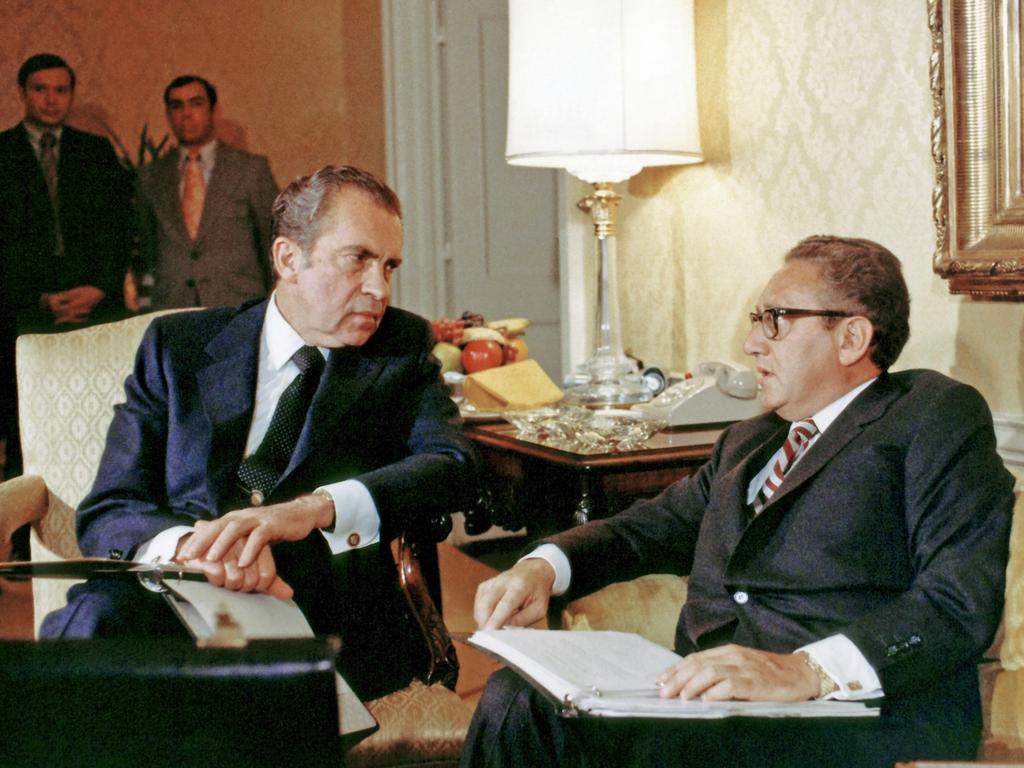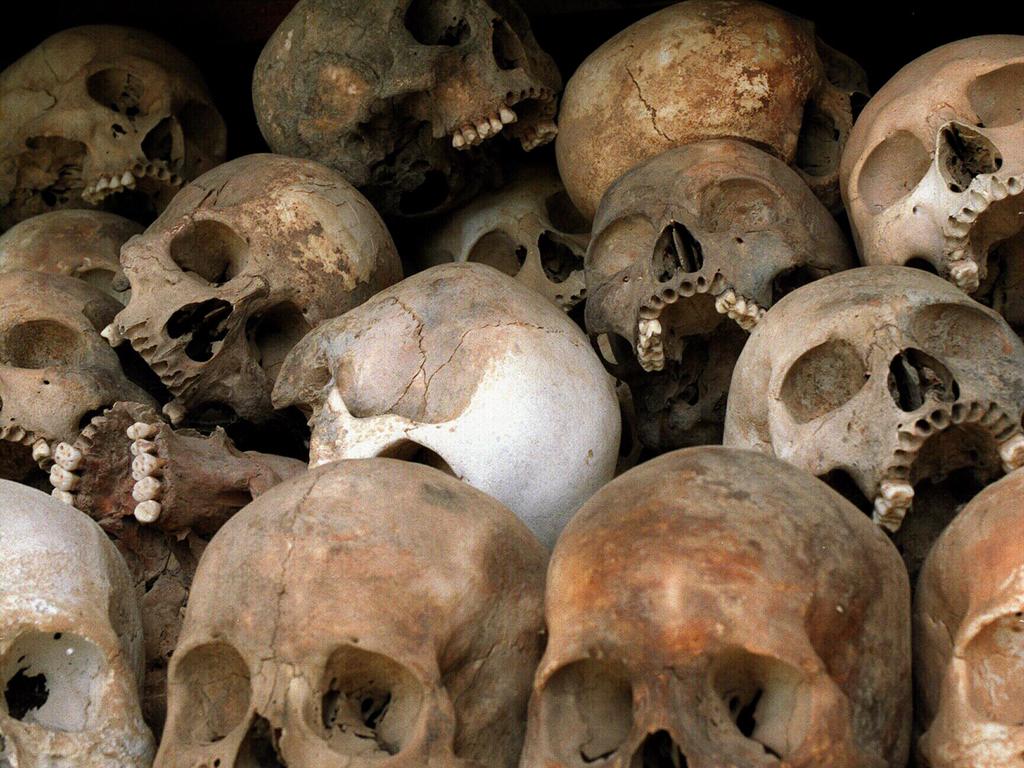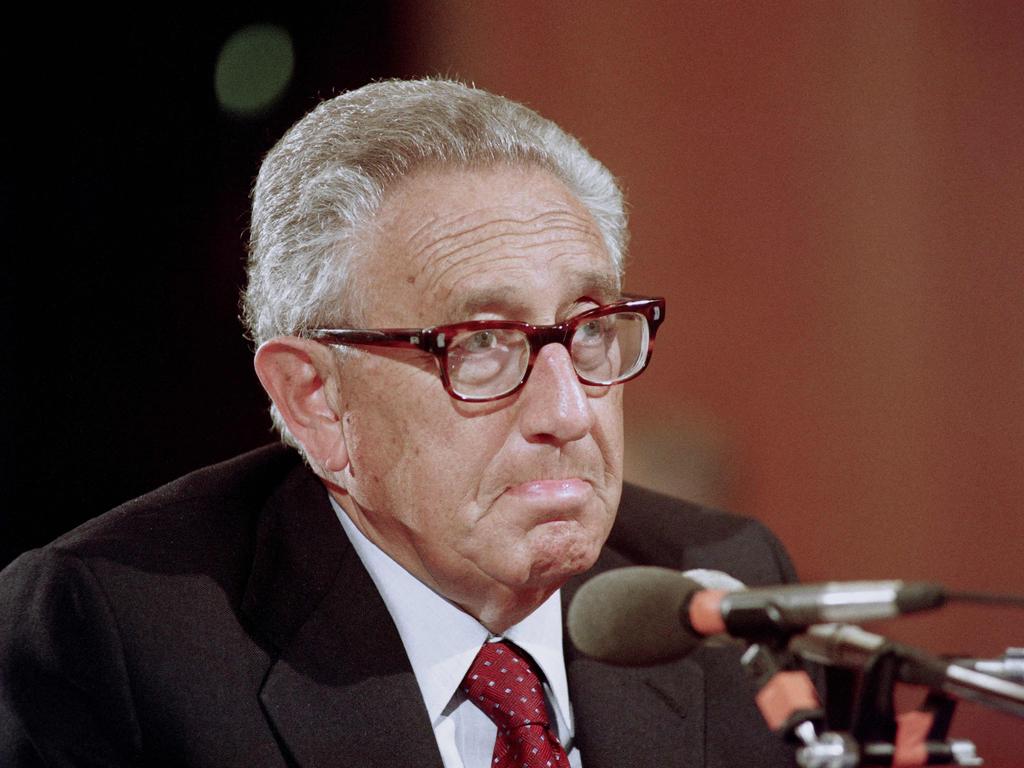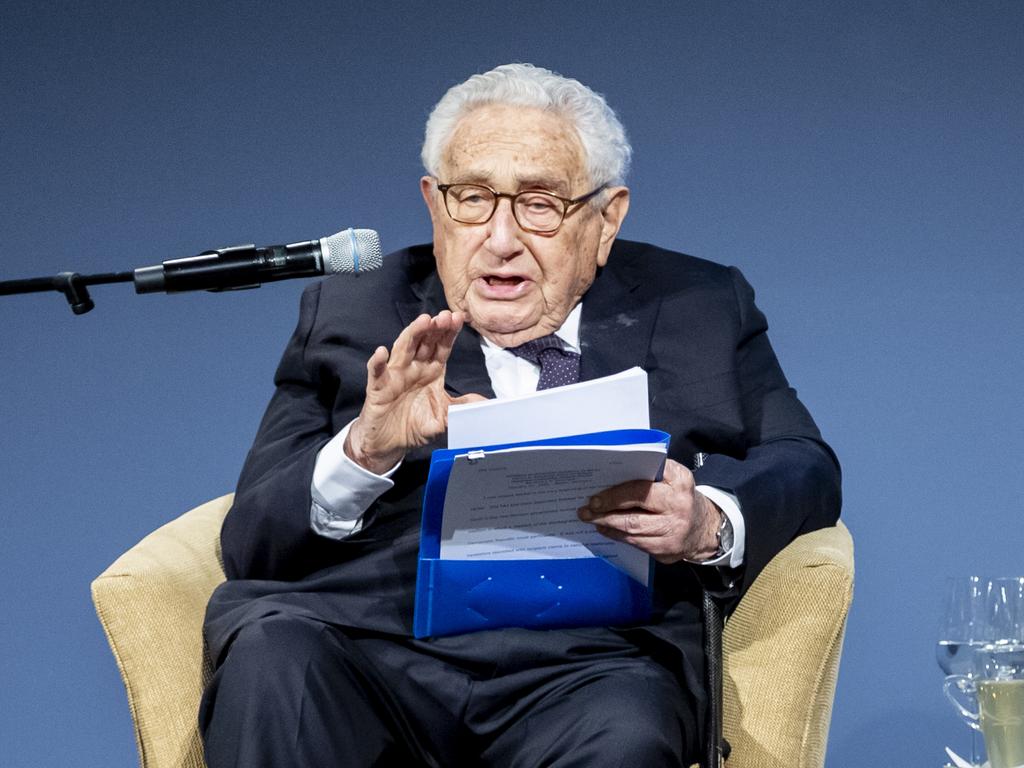
This article is more than
2 year oldThe death of Cold War diplomat and former US secretary of state Henry Kissinger has been met with mixed reaction’s from the world’s media.
Some have hailed him as a Cold War hero and others branding him a war criminal.
In a brutal obituary Rolling Stones magazine described him as a “state murderer” who was “responsible for the death of “every single person who died in Vietnam between autumn 1968 and the Fall of Saigon”.
The article was titled “Henry Kissinger, War Criminal Beloved by America’s Ruling Class, Finally Dies”.
It carried the subheading “good riddance”.

Kissinger was the secretary of state and national security adviser under Richard Nixon and then Gerald Ford, holding huge sway over foreign policy.
He authorised the carpet bombing of neutral Cambodia during the Vietnam War in a bid to disrupt a supply line into North Vietnam.
At the time of the bombings Cambodia was a promising nation that had won independence from France and was looking at a bright future.
But the chaos destabilised the government and contributed to rise of the Khmer Rouge, a brutal regime that sanctioned the systematic genocide of around 2 million people.

Kissinger was also accused of supporting a bloody coup in Chile that overturned a democratically leftist government.
CIA agents helped topple Marxist president Salvador Allende with bloodthirsty military dictator General Pinochet installed in his place.
Over the course of his 17-year-rule Pinochet killed and tortured thousands of political opponents
Although he won a Nobel Peace Prize for his role in helping to end his role in the Vietnam War, Kissinger was criticised for authorising the bombing of Hanoi during a ceasefire.
Two Nobel committee members resigned from their posts in protest and joint recipient North Vietnam’s Le Duc Tho refused to accept the prize.
Two years later Kissinger tried to hand the prize back North Vietnam invaded the South.
However other outlets were mostly positive, remarking on Kissinger’s rise from a child refugee of German Jews to a statesman responsible for the thawed relations between the US and the Soviet Union.
President Ford awarded Mr Kissinger the Presidential Medal of Freedom in 1977, for having “wielded America’s great power with wisdom and compassion in the service of peace”.
The son of German Jews, Kissinger escaped with his family from Nazi rule just days before the 1938 Kristallnacht pogrom, only to return six years later as a private and then sergeant in the US Army.

He was awarded a Bronze Star for his intelligence work as a member of the Army’s 84th Infantry Division during World War II, serving briefly as a military governor of a small town just 200 miles from where he was born.
Mr Kissinger, who worked in a New York toothbrush factory as a teenager while teaching himself English and attending night school, began his post-military career as an academic, completing his dissertation at Harvard in 1957.
He got his start as a foreign policy adviser in his mid-30s working for former New York Governor Nelson Rockefeller, who unsuccessfully sought the Republican presidential nomination twice before serving as vice president under Ford.
After leaving public office in 1977, the statesman formed a geopolitical consulting firm, Kissinger Associates, and went on to author more than a dozen books on history and diplomacy, his personal memoirs and, most recently, the implications of artificial intelligence.

He was sought for his advice by world leaders and Washington powerbrokers until his final days.
“Not only has he outlived most of his peers, eminent detractors and students, but he has also remained indefatigably active throughout his 90s,” Mr Kissinger’s son, David, wrote in a May Washington Post op-ed.
“My father’s longevity is especially miraculous when one considers the health regimen he has followed throughout his adult life, which includes a diet heavy on bratwurst and Wiener schnitzel, a career of relentlessly stressful decision-making, and a love of sports purely as a spectator, never a participant.”
Mr Kissinger was known to have a droll sense of humour as he conducted his official duties. Former Minnesota Republican Senator Rudy Boschwitz, who was also born in Germany two years before his family fled the nation during Adolf Hitler’s rise to power, relayed one such exchange with The Post.
“Well Rudy, the Constitution says we can’t be President,” Mr Kissinger reportedly told Mr Boschwitz, noting their shared heritage. “But it doesn’t say anything about Emperor.”
“We both had a good laugh,” Mr Boschwitz told The Post.
With the NY Post.